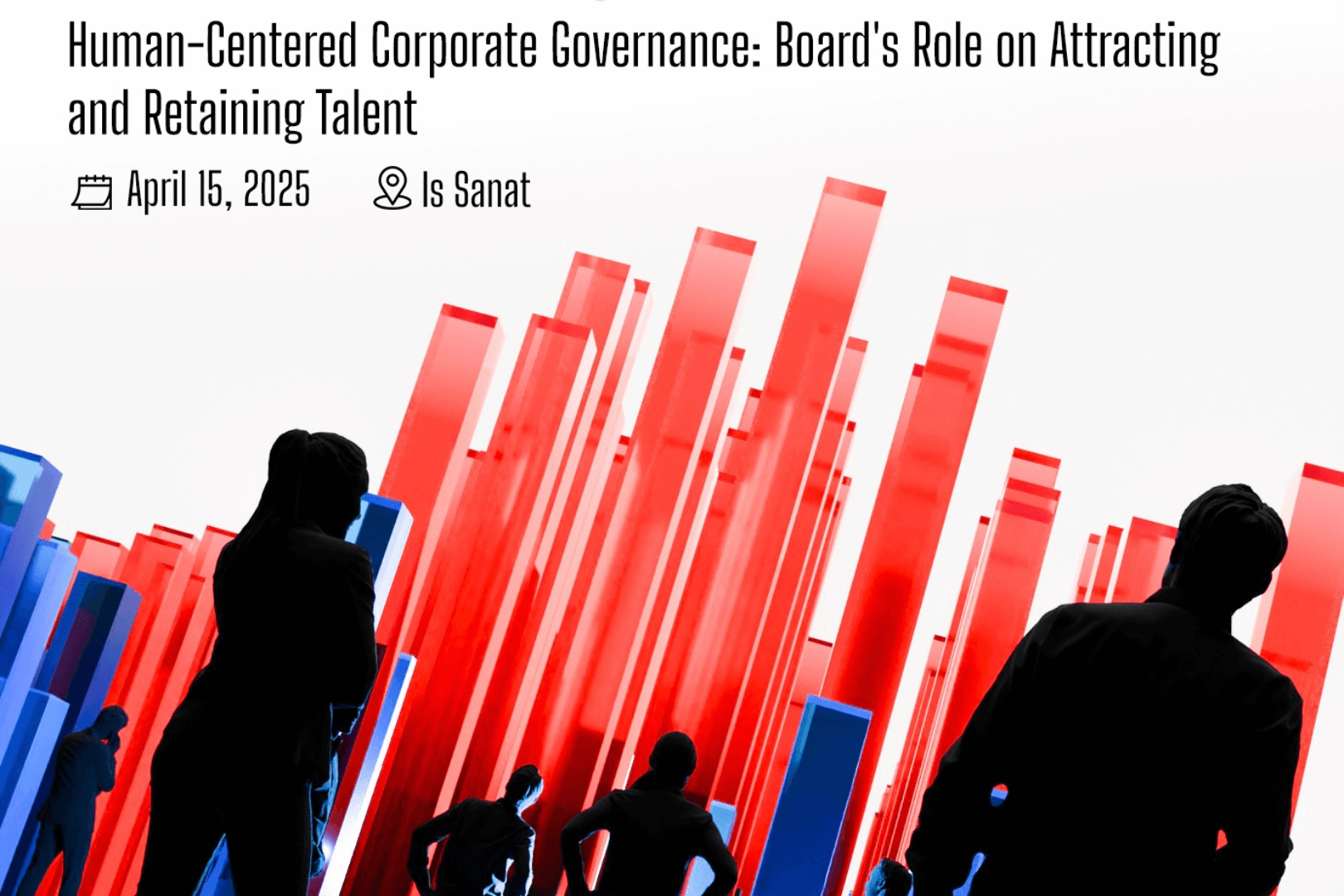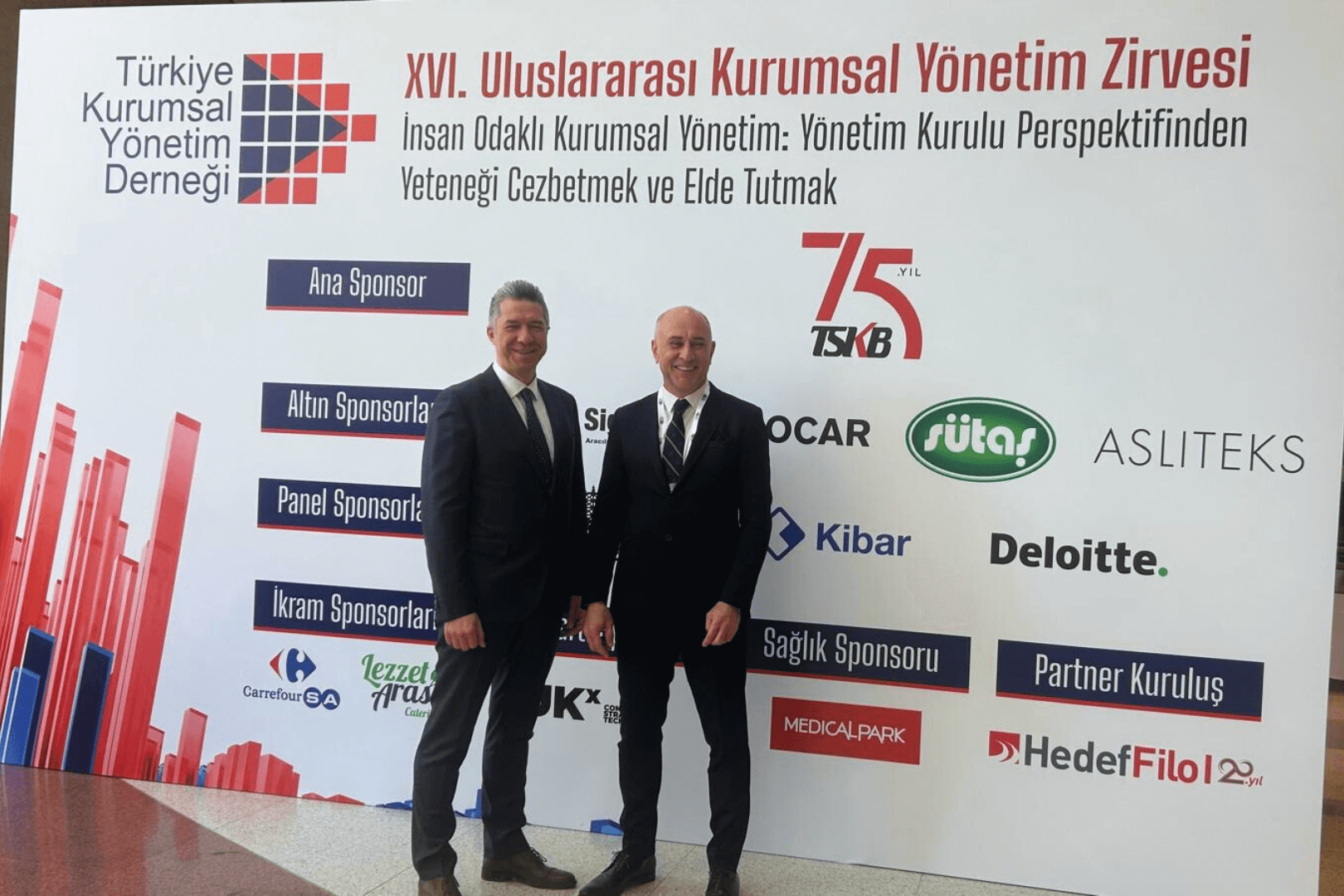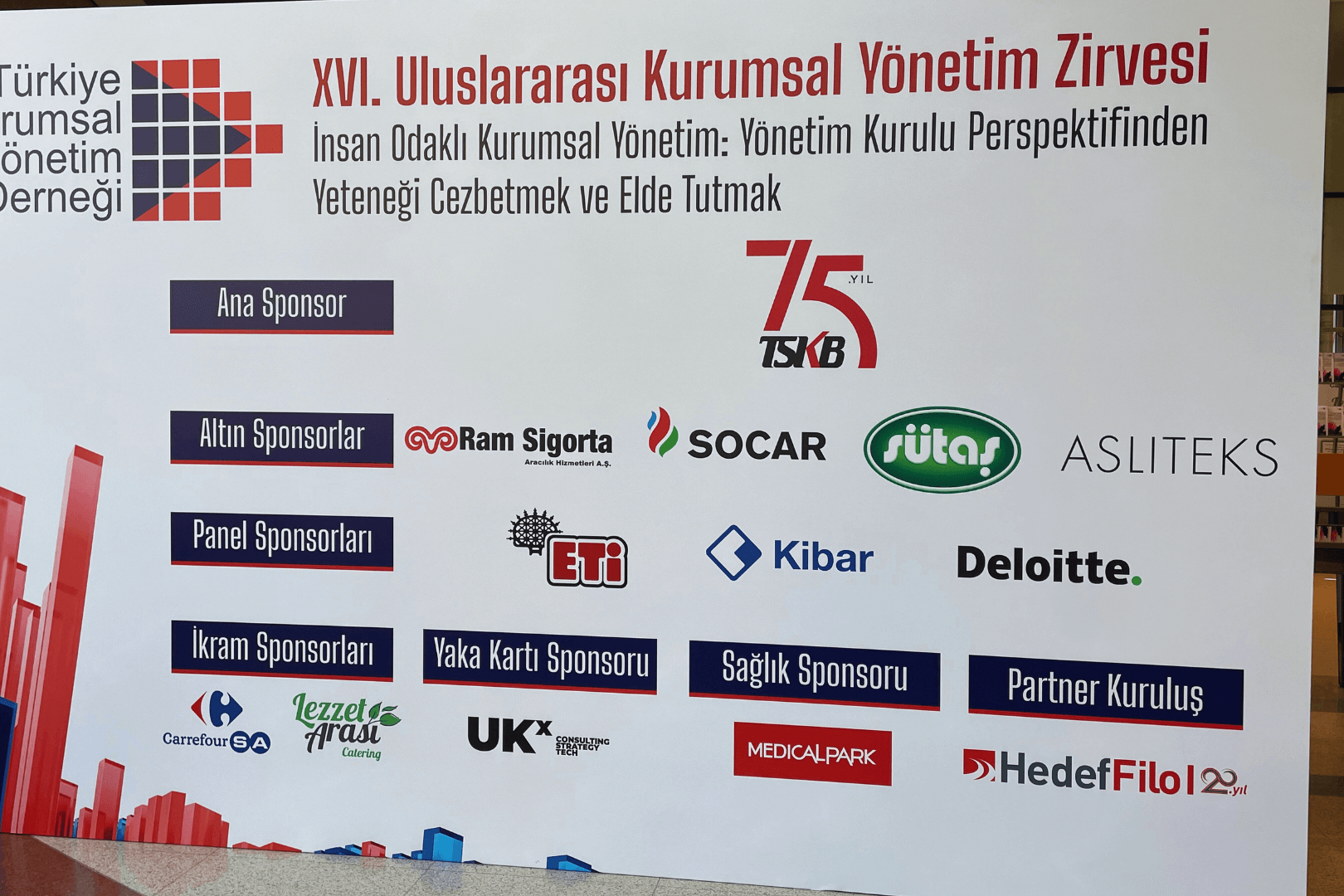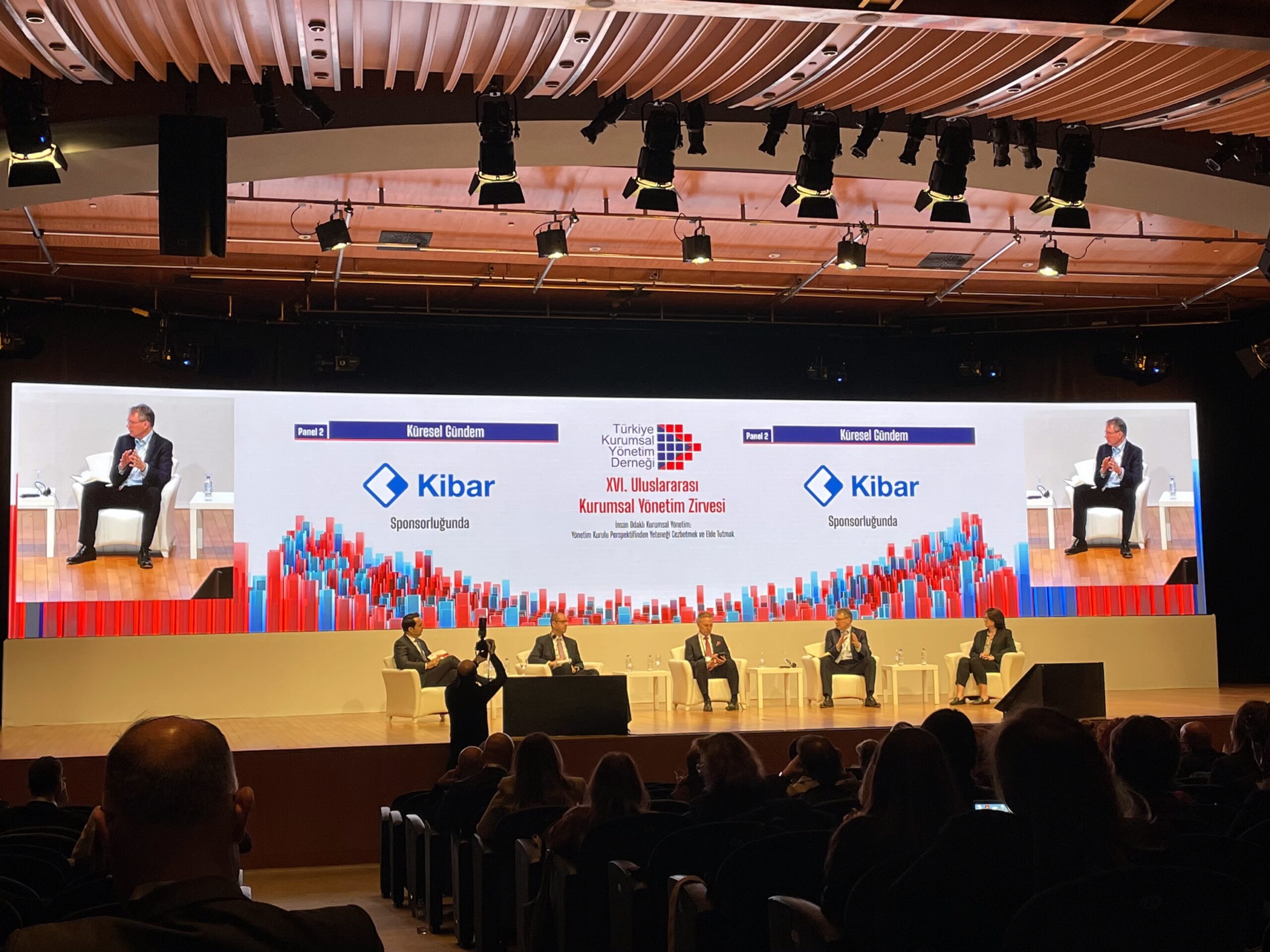
The 16th International Corporate Governance Summit was held on April 15, 2025, at the İş Sanat Cultural Center in Istanbul, under the theme “Human-Centered Corporate Governance: Attracting and Retaining Talent from the Board Perspective.”
It was an insightful and thought-provoking event where participants shared in-depth knowledge and perspectives. In geographies like Türkiye, where challenges around democracy and meritocracy persist, I’ve always seen platforms that highlight issues such as institutionalization, corporate governance, ethics, compliance, and reputation as courageous initiatives. I find it particularly exciting when the topics discussed go far beyond the current expectations of both society and the business world.
One session that particularly stood out for me was the panel titled “Managing Talent at the Board Table,” where Ali Sabancı and Sani Şener shared their candid experiences. Their reflections powerfully conveyed the fundamental values that are most needed in today’s business world. One key takeaway from their talks was this: creating truly meaningful and lasting value in business—which is certainly more than just generating profit—begins with a mindset open to continuous learning. Avoiding the “I already know” trap, recognizing that there are always people who may do things better than you, and remembering that long-term success often stems from wise leadership decisions made in the past and the strong teams built as a result.
In his opening speech, TÜSİAD Chair Orhan Turan made a striking and thought-provoking point by placing “the human element” at the heart of the core principles of corporate governance—fairness, transparency, accountability, and responsibility. This approach reminded us once again that corporate governance must be built not only on structural but also on human foundations.
This powerful message prompted me to reflect: What would a businessperson who truly embodies these principles look like? What values would they hold, and how would they behave?
These thoughts gradually crystallized in my mind, shaping a clear portrait of such an individual. In my view, a fair, transparent, accountable, and responsible businessperson:
Values ethical processes: Focuses not only on achievements measured by numbers, but also on building a sustainable business culture based on trust and reputation. Prioritizes how results are achieved—not just the results themselves—and ensures business processes adhere to ethical standards, legal frameworks, and societal values.
Acts with knowledge and consistency: Draws strength from knowledge; there is consistency between their words and actions.
Learns and teaches continuously: Is committed to self-development and contributes to the growth and empowerment of those around them.
Considers the interests of society and stakeholders: Acts openly and honestly with all stakeholders, and when making difficult decisions, takes into account the long-term interests of not only the company, but also employees, customers, suppliers, and society at large.
Takes responsibility for mistakes: Shares credit for success and assumes responsibility in times of failure.
Embraces both internal and external transparency: Sees transparency not just as a means of external accountability but as a way to build a culture of trust within the organization and inspire teams.
Encourages participation: Promotes inclusiveness in decision-making processes and is unafraid to share power.
Applies fairness with equity: Goes beyond formal equality to consider individual contributions and circumstances, ensuring that everyone receives what they truly deserve.
Aims for sustainability, not short-term gains: Prioritizes long-term trust and reputation over instant profits.
A fair, transparent, accountable, and responsible stance is not merely a model of governance; it is the foundation of lasting trust built on ethical values, integrity, and respect for people. Business leaders who embrace these principles have the power to transform not only their organizations but also the societies in which they operate. Every decision taken with a commitment to ethics and integrity nourishes both corporate culture and the collective conscience of society.
We all have a responsibility to act with fairness and sincerity in our decision-making, always remembering the human element, and valuing the journey as much as the destination. Because in the end, what truly remains is not just what we’ve gained, but how we gained it and whose lives we’ve touched along the way.
Perhaps that’s why—now more than ever—it’s time to build a business world that prioritizes values, never loses sight of the human factor, and refuses to compromise on ethics and integrity.
On this occasion, I would like to sincerely thank all the stakeholders who made the 16th International Corporate Governance Summit possible and provided us with such a meaningful platform for reflection. I extend my gratitude to all the speakers whose impactful content and value-driven insights inspired me deeply. This summit, with its bold approach to viewing corporate governance not just structurally but also from a human perspective, offered hope—not just for today, but for the future.










